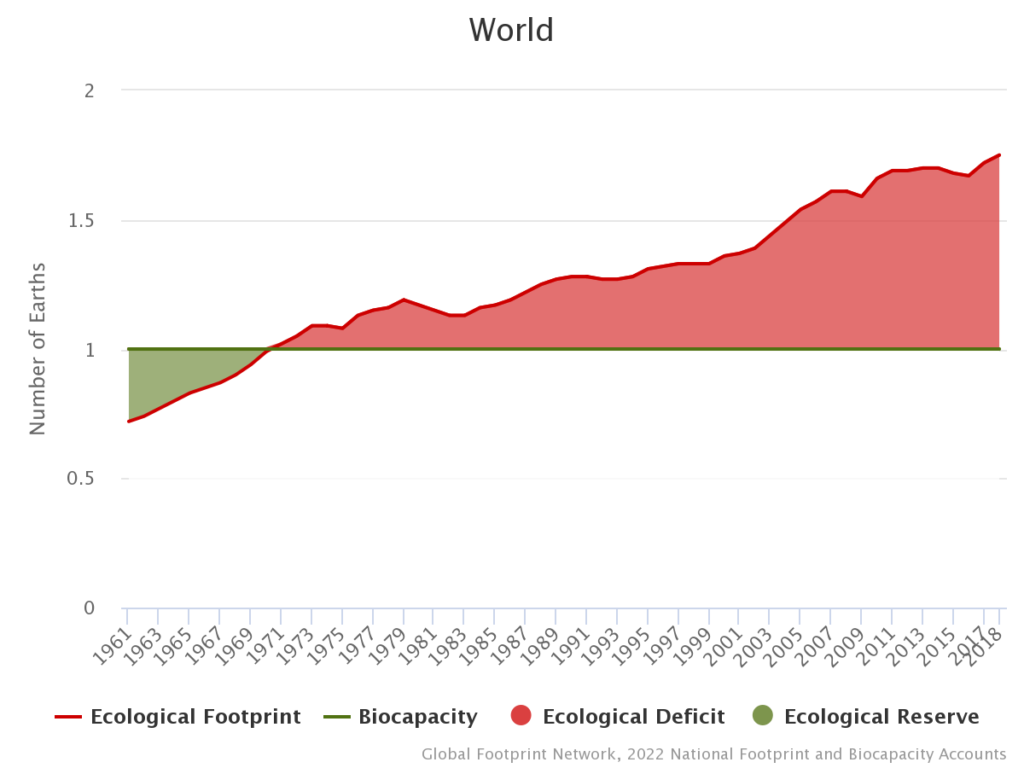World Environment Day 2022: Still Only One Earth
Written by Olivia Nater | Published: June 4, 2022
June 5th marks World Environment Day, a United Nations Environment Programme (UNEP) initiative to raise awareness of and inspire action on environmental issues. It’s been 50 years since the seminal 1972 UN Conference on the Human Environment in Stockholm, which sparked the first World Environment Day celebration in 1973 with the theme ‘Only One Earth.’ Have we heeded its warning?
Accelerating in the wrong direction
This year’s World Environment Day organizers chose to resurrect the theme of the very first edition to stress the urgency of our planetary crises. The UN identifies three principal environmental emergencies: the climate crisis, nature and biodiversity loss, and pollution and waste. All three have sadly only escalated in the last 50 years. For example, despite climate pledges, global greenhouse gas emissions are still increasing; the extinction crisis is still accelerating, with one million species now at risk of disappearing for good; and air pollution is causing seven million premature deaths every year, making it the most significant environmental health risk of our time according to UNEP.
Data from the Global Footprint Network shows that we first exceeded our planet’s limits around the same time as the Stockholm Conference — this is when we went into ‘ecological overshoot,’ using natural resources at a faster rate than the Earth can regenerate them, leading to resource depletion and environmental destruction.
Due to continued population and consumption growth, our overshoot has steadily worsened since the early 1970s — today, our population is more than twice as large, standing at close to 8 billion, and we are collectively using natural resources 1.7 times faster than they can regenerate, meaning we would need nearly two planets to sustain our current demand without destroying nature.

2022 also marks the 30-year anniversary of the 1992 Earth Summit in Rio de Janeiro, which produced the UN Framework Convention on Climate Change that paved the way for the 2015 Paris Accord in which world leaders pledged to limit warming to 1.5°C above pre-industrial levels. The latest report by the UN’s independent climate science body, the Intergovernmental Panel on Climate Change (IPCC), shows that without drastic action, we will significantly exceed this threshold, with dire consequences for the planet and all of humanity.
Our future is in our hands
As the Global Footprint Network points out,
“Since living off depletion is time-bound, our choice is between ending overshoot by design or letting it end by disaster.”
We are fortunate to still have this choice, but living within our planet’s limits requires profoundly and rapidly transforming our relationship with nature. We need to urgently decarbonize our economies, end overconsumption and waste, clean up our industries, improve our food systems, and stabilize our population by ensuring everyone has the power to choose their family size.

The Global Footprint Network calculates that if every other family had one fewer child than expected under the UN median population projection, and if the average age of women at first birth were postponed by two years (which ending child marriage could help achieve), Overshoot Day — the annual date on which humanity has used up its resource budget for the entire year — could be pushed back by 49 days by 2050 because there would be two billion fewer of us than projected.
Project Drawdown, an organization that analyzes available climate solutions, found that achieving the UN’s medium population projection for 2050 instead of its high one, by improving women’s and girls’ access to education and reproductive health care, could reduce atmospheric carbon dioxide by 85 gigatons, making it one of their most powerful proposed solutions.
The Stockholm Conference was also the first international meeting to connect the goals of poverty alleviation and environmental protection, which later led to the development of the Sustainable Development Goals (SDGs). Removing all barriers to voluntary family planning and quality education would bring unmatched benefits to communities everywhere and would go a long way towards achieving the SDGs, the vast majority of which are currently out of reach.
We still have only one Earth, and we always will. This World Environment Day, let’s ensure our planet and its people can thrive far into the future.

